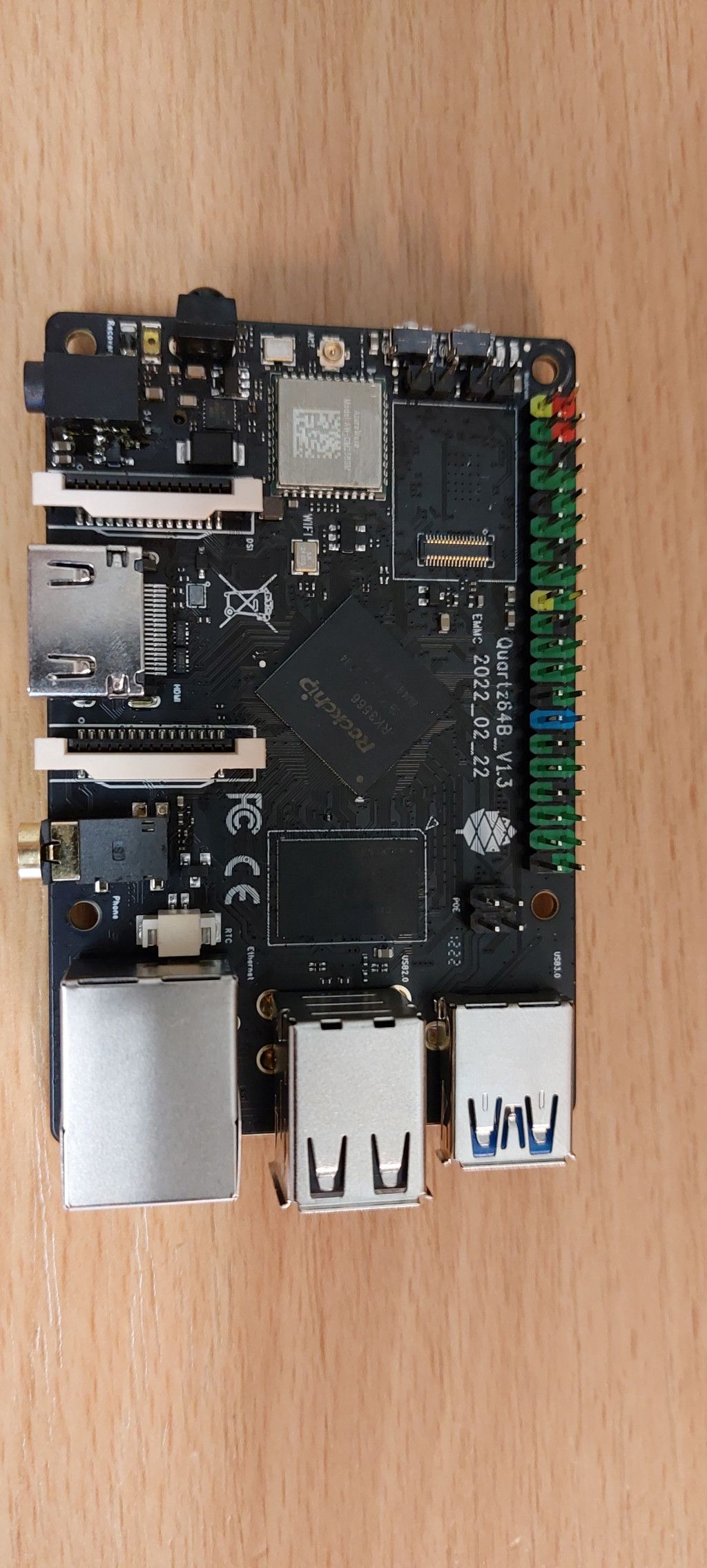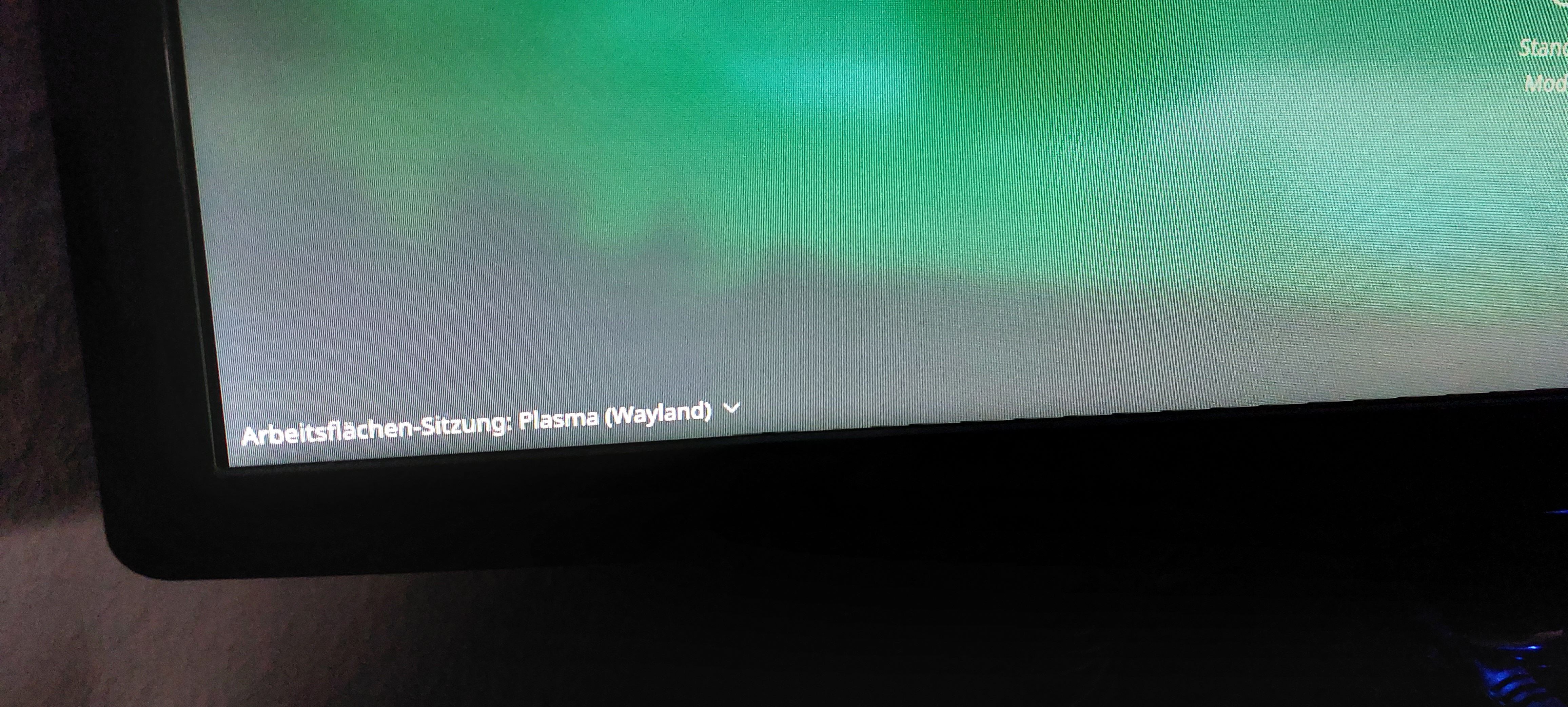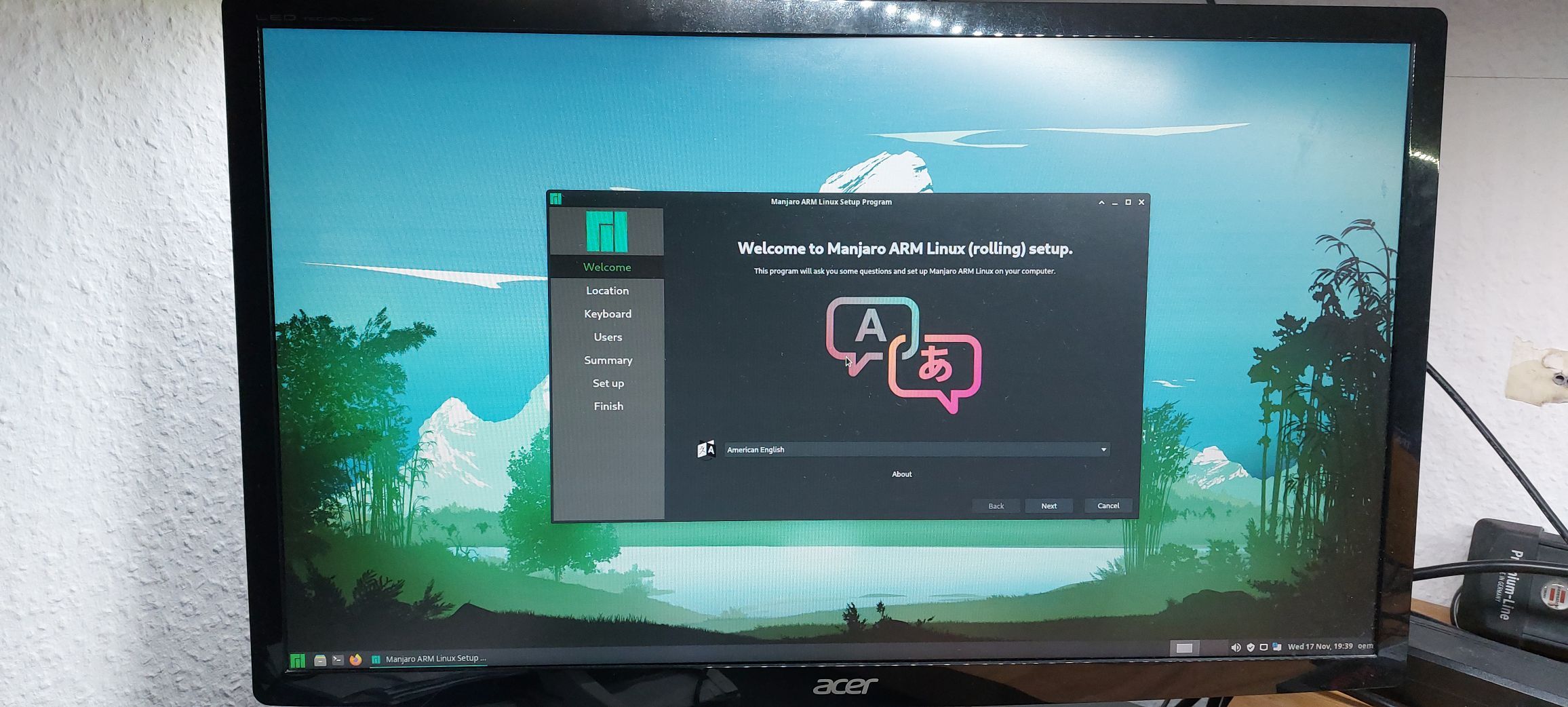Quartz64 - Modell B - Kernelversionen
-
5.19.0-rc1-0.4-MANJARO
So, nachdem jetzt offenbar einige mehr den B zu Hause haben, tauchten direkt erste Probleme auf. Zwei Personen konnte das Manjaro nicht booten, obwohl sie offensichtlich alles richtig machten.
Die Profis tippten auf die SD-Karten bzw. den Slot. Da fiel mir mein sehr seltsames Problem auch sofort wieder ein. Ganz selten, sah es beim Booten so aus als wenn sich der Bootprozess aufhängte.
Peter machte dann einen Patch fertig, der was an der Spannungsversorgung änderte und an der Geschwindigkeit.
- sd-uhs-sdr104; + sd-uhs-sdr50;Kurz und knapp, die Geschwindigkeit auf der SD-Karte wurde verringert, erhoffter Erfolg ist erstmal mehr Stabilität. Die betroffenen Personen konnte nun ihre Manjaro Images einwandfrei starten. Somit ist das Problem erstmal eingekreist. Die Lösung ist aber hoffentlich nur ein temporärer Fix.
Ab Kernel
[root@frank-pc ~]# uname -a Linux frank-pc 5.19.0-rc1-0.4-MANJARO-ARM-Q64 #1 SMP PREEMPT Tue Jun 14 19:54:47 UTC 2022 aarch64 GNU/Linuxist der Fix drin. Also drauf achten, wenn ihr Probleme beim Booten habt

-
-
-
-
-
-
-
Quartz64 - GPIO Modell A
Pinned Moved Quartz64 - A -
Wichtige Links zum Quartz64
Pinned Moved Quartz64


